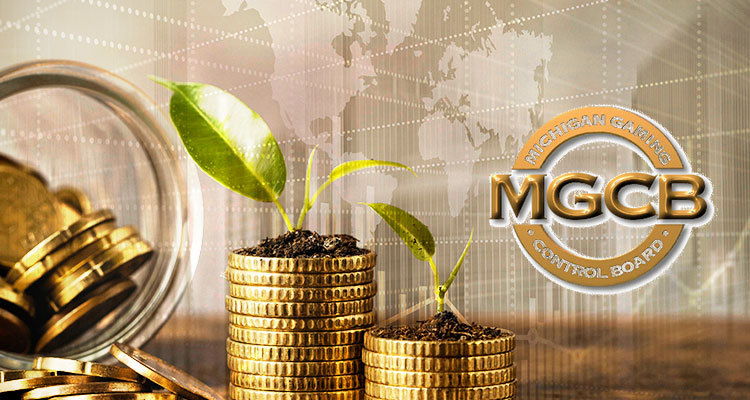
In Michigan, the city of Detroit’s trio of commercial casinos including MGM Grand, MotorCity and Hollywood Casino at Greektown has collectively reported monthly revenue for July of $107.2 million, some $8.6 million shy of June’s monthly aggregate revenue of $98.6 million, according to figures released this week by the midwestern state’s gaming regulator.
Published on Tuesday, the Michigan Gaming Control Board’s (MGCB) casino revenue report for July state’s that the lion’s share of revenue, $105.9 million, was generated by table games and slots, while $1.3 million was generated by retail sports betting – compared with $98.2 million and $448,703, respectively, the month prior. The state reports revenues from online gambling separately.
MGM Grand Detroit:
Regarding market share, the city’s leader with 48 percent was MGM Grand Detroit, which is owned by Vici Properties and operated by MGM Resorts International. MotorCity Casino Hotel followed with 33 percent market share and with 19 percent, Hollywood Casino at Greektown.

Revenue generated from the three land-based casino’s table games and slots dipped 8.4 percent year-over-year, however, increased 7.9 percent over June. From January 1 through July 31 this year, slots and table games revenue was up 3 percent over the same seven-month period last year, according to the MGCB.
Table games and slots revenue at MGM was down 4.7 percent to $51.2 million, while MotorCity’s fell 9.6 percent to $34.8 million, and revenue decreased 15 percent year-over-year to $19.9 million at the Vici Properties-owned and Penn Entertainment-operated Hollywood Casino at Greektown.
Taxes Paid:
The “Wolverine State” collected $8.6 million in wagering taxes from the three Detroit brick-and-mortars for the month, a $9.4 million drop from July 2021. During the month of July, the three casinos reported submitting $12.6 million in wagering taxes and development agreement payments to the state’s largest city.

Retail Sports Betting:
As far as retail sports betting, qualified adjusted gross receipts (QAGR) improved 3.8 percent year-over-year to $1.3 million during July. QAGR rose by $809, 532 from June’s $448,703 results. The three commercial casinos, the only ones in the state, reported a total retail sports betting handle of $18,860, 759 while $1.3 million in total gross receipts were reported.
The Detroit casinos paid the state $47,561 in taxes tied to retail sports betting. And for retail sports betting wagering taxes and development agreement payments , the casinos reported paying the state $58,130 during July.
Casino License Renewal:
On Tuesday, the MGCB also reported voting unanimously to renew the licenses of the three Detroit casinos, according to the official news release. Current law dictates three votes are necessary to support the board’s final determinations on casino license applications.
“A casino license is a privilege granted by the State of Michigan. Board members and agency staff take seriously our responsibilities when reviewing this privilege each year as required by law,” read a statement from Henry Williams, MGCB executive director.
MI Soaring:
Meanwhile, according to a recent report, the state of Michigan is destined to outrank New Jersey in online gambling revenues and hold the title as the largest gaming market in the United States.
Gambling for India refers to the act of participating in various forms of gambling, whether online or offline, within the context of Indian laws, culture, and preferences. Gambling includes activities where individuals wager money or valuables on uncertain outcomes with the intent of winning more money or prizes. In India, gambling encompasses a wide range of activities, from traditional games like Teen Patti and Andar Bahar to modern casino games, sports betting, and online gambling.
Gambling for India is an evolving landscape, where both traditional forms of gambling and modern online gambling are becoming increasingly popular. While the legal environment remains complex, with a mix of state laws and offshore regulations, the gambling market continues to grow, driven by technology, changing cultural attitudes, and the demand for entertainment. Players interested in gambling in India should always ensure they are using reputable platforms and understand the legal and financial implications of their actions.




